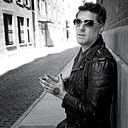Brief Thoughts on a Cosmic Art
A Historian of the Occult Considers Why Astrology Has Endured
Astrology has proven remarkably durable in the digital age. The Chilean newspaper El Mercurio recently asked me why. Here is the English-language version of our discussion.
How can you explain the rise of astrology on internet in the last five years and why these apps and memes are booming among millennials?
MH: I think for the same reason that astrology seems to boom among every generation — which is that people find a glimmer of insight and truth in it. Newspaper astrology, for example, became popular shortly after World War II. So, this kind of media popularity is not a new phenomenon. Now, critics would say that all of this is merely testament to human foible and foolishness; that’s too easy an answer. One cannot speak of astrology as a trend so much as an ancient cultural retention. That means it requires a more careful look than an eye roll.
From an historical perspective, is this boom similar to another moment astrology has had in the past? What’s the evolution astrology has had in history?
MH: Astrology, like all ancient retentions, has followed a very crooked, jagged, and sometimes frayed line. The astrology we know today in the West is not what was understood by the ancient Babylonians, for example. As practiced in the East today, particularly in the Vedic system, astrology has entirely different points of astronomical alignment than Westerners use. So, there’s no single astrological history to speak of. That said, astrology has experienced various points of resurgence in the West, usually during periods of artistic and intellectual experimentation, such as during the Renaissance and the the occult revival movements that swept Europe and the Americas in the late 19th century.
Is it possible that one of the reasons of this current booming is that young people are moving away from religion, and spirituality fills that empty space?
MH: According to several polls, “non-affiliated” is the fastest growing religious category in North America, so that is a definite possibility.
Some people say astrology is a bunch of nonsense. Do you consider astrology as a science? Or is it more a cultural/psychological phenomena?
MH: I am interested in the astrology of Carl Jung, Henry Miller, and DH Lawrence, all of whom considered it a tantalizing typology of personality. I wouldn’t quite describe it as a science, so much as an elusive but enduring occult psychology, or a cosmological psychology.
In your opinion, what are the main dangers of having more people following mystical beliefs?
MH: People face the same dangers whether they’re interested in materialism or mysticism, which is the certainty that theirs is the right way, and that they are granted the privilege of defining the validity of another’s search.
